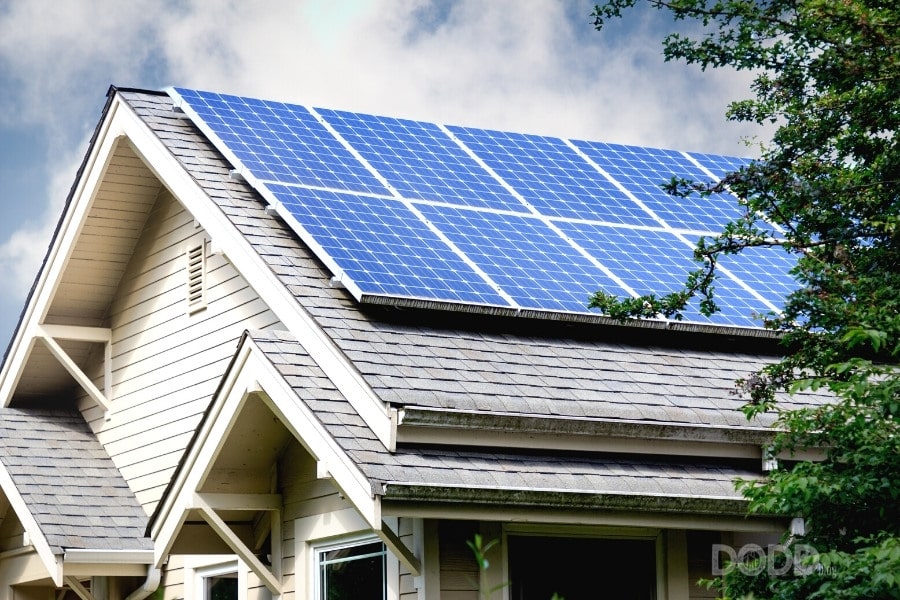In the realm of small business management, the adage “you have to spend money to make money” is a steadfast truth. However, the question isn’t merely a matter of how much to spend but where the spending is most effective.

This is where solar energy panels have been receiving significant attention, as their long-term financial benefits are weighing in on decision-makers minds more heavily than their once-overwhelming upfront costs.
For burgeoning companies, this could mean the difference between running a lean, green machine and one that chokes up capital on inefficient energy practices.
In this detailed exploration, we quantify the benefits of solar power, assess its value to the fiscal bottom line, and encourage prudent investments that not only benefit business owners but contribute to a healthier planet.
Reduction of Operating Costs through Decreased Utility Bills
It’s an open secret that energy bills can be a significant operational expense for businesses, especially where large commercial spaces are involved. Solar power presents the most direct and immediate means of reducing this financial setback. Initial investments in solar panels are now more cost-effective than the expenditure you’d expect with maintaining traditional energy consumption.
This drastic change can result in thousands of dollars saved annually, particularly in locations where solar energy is abundant. Whether you choose to hire suppliers like Innasol Solar PV or you prefer to go independent, it’s now easier than ever to find a solution that works best for your business needs.
But how does it work? Solar panels harness energy from the sun and convert it into electricity, meaning that for every unit of electricity generated, that’s one unit that doesn’t need to be purchased from the grid. In this way, solar power becomes a hedge against inflation and a way to stabilize operating costs over time.
Eligibility for Government Incentives and Tax Credits
The allure of solar power grows even more potent when you consider the government incentives and tax credits available to businesses. Across various jurisdictions, local, federal, and state agencies are offering substantial incentives to switch to renewable energy, including solar panels.
These are not trivial—it’s possible for businesses to get significant reimbursements or deductions, sometimes totaling up to 30% or more of the installation cost. For small businesses with tight budgets, these financial aids are a game-changer, converting what might have seemed like a long-shot investment into an attractive, attainable solution.
In essence, the government wants companies to go solar and is willing to make it financially rewarding for them to do so.
Enhanced Business Reputation by Demonstrating a Commitment to Sustainability
In an era where consumers are increasingly conscious of the environmental footprint of the companies they support, a commitment to sustainability isn’t just good for the planet—it’s also good for business. Solar panels serve as a very visible emblem of a corporate commitment to reducing greenhouse gas emissions and environmental stewardship.
For many modern customers, this demonstration of social and environmental responsibility can sway their buying decisions. Companies that project a green ethos often find it easier to attract and retain customers. This intangible but very real benefit can be the difference between a customer choosing your business over a competitor.
Increased Property Value with the Addition of Solar Installations
The impact of solar installations on property value cannot be understated. For buildings with integrated solar, the market value typically sees a significant bump. In fact, a study by the U.S. Department of Energy’s Lawrence Berkeley National Laboratory found that buyers are willing to pay a premium for properties with solar panels already installed.
This not only justifies the initial investment but can well exceed the cost of installation over the lifetime of the panels. For small business owners who may end up selling their property in the future, this consideration is key.
It means that the money you might spend today on solar can easily come back to you, and then some, when you decide to move on or expand.
Protection Against Rising Energy Costs in the Long Term
The operational expense of electricity is on an upward trajectory, a tide that the switch to solar can stem. By producing your own power—power that you’ll continually use, without the flux and fees the utility companies apply—businesses can effectively lock in the cost of electricity at a lower rate. In essence, installing solar panels is a safeguard against unpredictable future rates. This is a significant advantage, particularly for businesses with long-term strategies. Knowing and controlling one of the most fundamental operational costs gives companies stability and a competitive edge, allowing for better financial planning and more aggressive growth strategies.
The benefits of solar power for small businesses are clear and compelling. While the initial investment may seem daunting, it’s crucial to consider the array of ways that solar can make your business more profitable.
From reducing day-to-day operating costs to enhancing your appeal to increasingly eco-conscious consumers, and even protecting your business from the volatile utility marketplace, solar energy isn’t just about warm and fuzzy feelings—it’s about hard-nosed numbers that any savvy business owner can appreciate. For the future of small businesses and the environment, now is the time to harness the power of the sun for long-term prosperity.
In an age where the economic and ecological benefits align so perfectly, making the move to solar might just be the smartest decision a small business can make.
